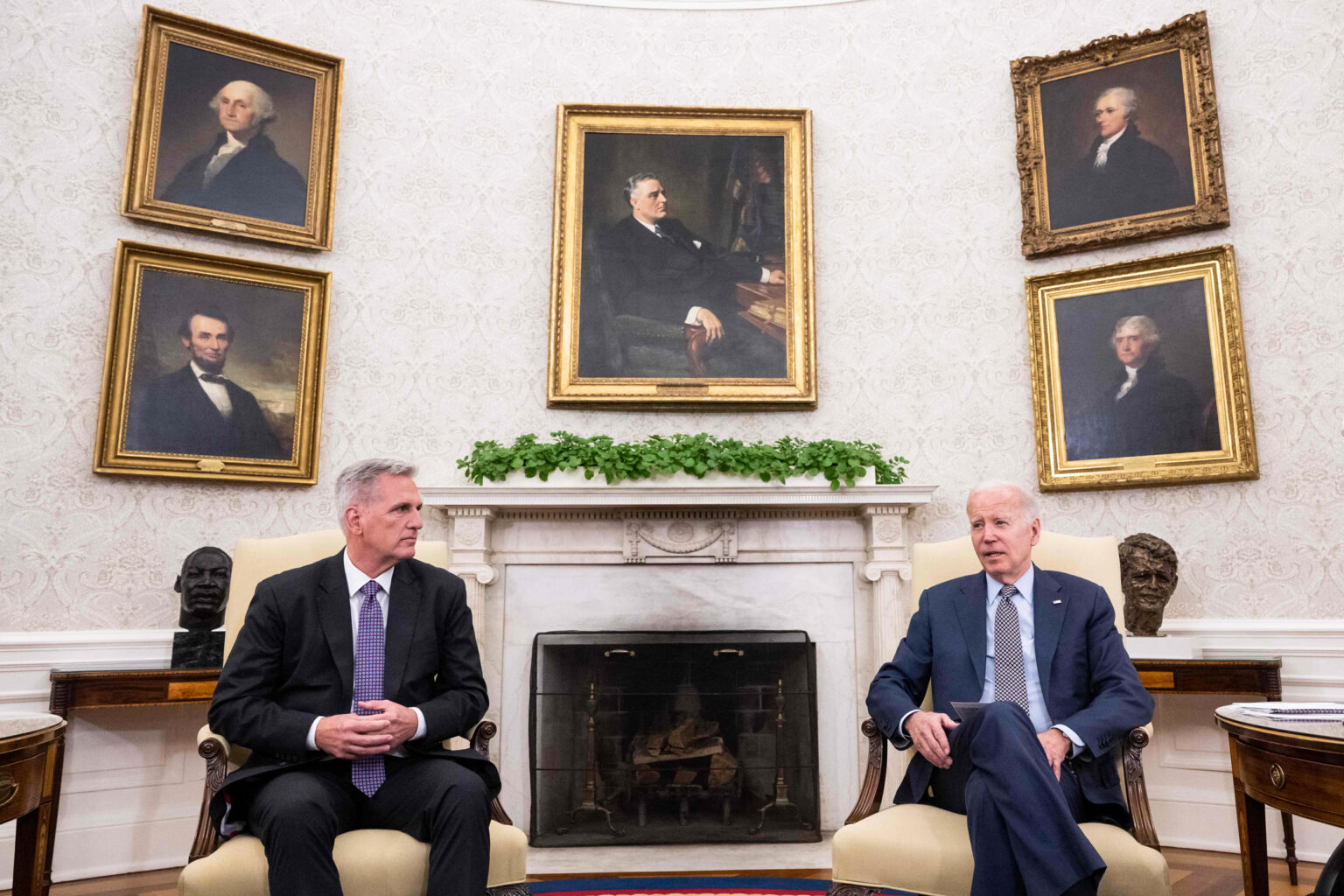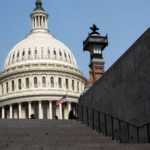Global Courant 2023-05-29 03:59:59
President Joe Biden announced a debt ceiling deal on Sunday, which he said would prevent a “catastrophic default” by the federal government while keeping the economy flexible.
“It takes the threat of catastrophic bankruptcy off the table,” Biden said during a brief statement about the bipartisan deal that still needs approval from both chambers of Congress.
The president expressed his relief that the debt ceiling would not be in play for two years in budget negotiations between Democrats and Republicans.
“I strongly urge both chambers to approve that agreement,” he said. “Let’s keep moving forward.”
Biden said he had just spoken with House Speaker Kevin McCarthy, who earlier Sunday expressed confidence that their debt ceiling deal would pass Congress despite early criticism from some lawmakers.
McCarthy, R-Calif., said at a news conference that he expects more than 95% of House Republicans to support the bill, which he said he expected to be about 150 pages or less.
The House currently plans to consider the bill Wednesday after markets close, the Senate GOP was told.
“This is going to be transformational, with Congress literally going to vote to spend less money this year than it did last year,” McCarthy said.
Asked by reporters Sunday in Washington if he is confident the deal will make it to his desk, Biden said, “Yes.”
Negotiators reached an agreement in principle on Saturday evening to extend the debt ceiling. The text of the bill will be drafted by Republicans and reviewed by the Biden administration before it is finalized, House Minority Leader Hakeem Jeffries, DN.Y., wrote in a letter to Democrats on Sunday.
Jeffries told his caucus that shortly after Biden and McCarthy spoke to finalize the deal, Republicans will clear the bill.
The tentative agreement, which is expected to increase the country’s borrowing power in exchange for spending cuts, came about after weeks of negotiations led by Biden and McCarthy.
A source familiar with the deal said it includes a two-year credit agreement and a two-year debt limit extension, effectively resolving the issue until after the 2024 election. It includes work requirements to receive federal aid under the Supplemental Nutrition Assistance Program, or SNAP, for people up to age 54, with exceptions for the homeless and veterans. But there will be “no changes to Medicaid,” the source said.
Some lawmakers on both sides of the aisle criticized the deal on Sunday shows.
Rep. Pramila Jayapal, D-Wash., the chair of the Congressional Progressive Caucus, said Democratic leaders should be concerned about progressive support for the deal on CNN’s “State of the Union.”
Jayapal, who has been made aware of the agreement, criticized the provision that would tighten work requirements for the SNAP food aid program, calling it “bad policy”.
“It’s really unfortunate that the president has opened the door to this, and while at the end of the day, you know, maybe – because of the waivers – maybe this will be okay, I can’t commit to that. I really don’t know,” Jayapal said.
Rep. Jim Himes, D-Conn., said the deal has no Democratic priorities. Still, he said it could get some support from Democrats because it’s a “very small bill.”
“If the bill had looked anything like what the Republicans passed on the floor, where they withdrew all the money that was meant to create an electric battery industry in this country, designed to further drive drug prices you would have been unanimously against it,” Himes said. “Fox News Sunday.”
Some Republicans quickly challenged McCarthy’s claim that a majority of the conference was “very excited” about the deal.
Senator Lindsey Graham, RS.C., disagreed with the defense spending proposals, saying it would be a “joke” to take over what he characterized as Biden’s defense budget.
“I want to raise the debt ceiling. It would be irresponsible not to,” Graham said on Fox News Sunday. “I want to control expenses. I would like a smaller tax office. I would like to reclaim the unused Covid money. And I know you can’t get perfect, but what I won’t do is take Biden’s defense budget and call it a success.”
And Rep. Chip Roy, R-Texas, called the bill a “turd sandwich” in one tweet.
Two GOP negotiators, Representatives Garret Graves of Louisiana and Patrick McHenry of North Carolina, defended the deal Sunday afternoon.
“Many of the things people have said or claimed are just not right,” Graves said. “I’m confident that once the text comes out, people will recognize that we’re actually in a pretty good place.”
Graves and McHenry explained the discrepancies between White House and Republican spending estimates, saying the bill would roll back discretionary spending to fiscal year 2022 levels — which was in the GOP bill that passed the House weeks ago. has adopted. They also said they don’t count $121 billion in funding for the Department of Veterans Affairs like the White House.
Once the legislative language is finalized, it will need to be approved by both the GOP-led House and the Democratic-controlled Senate.
In a letter to Senate Democrats on Sunday, Senate Majority Leader Chuck Schumer, DN.Y., said senators should prepare for possible votes Friday and next weekend.
Meanwhile, McCarthy said he is already working with Senate Minority Leader Mitch McConnell, R-Ky.
White House officials will hold separate briefings with House Democrats and Senate Democrats on Sunday night, a source familiar with the plans said. Both briefings will be led by Shalanda Young, the director of the White House Office of Management and Budget; John Podesta, Biden’s senior adviser on clean energy; and Aviva Aron-Dine, the deputy director of the National Economic Council, two Democratic sources said.
House Republicans dubbed the agreement “The Fiscal Responsibility Act” in a memo circulated to members Saturday night. “Republicans will restore fiscal health and hold Washington accountable,” the memo read.
Last week, Treasury Secretary Janet Yellen extended the deadline to act or risk breaching the debt ceiling to June 5. She had previously been less specific, saying that US money “could possibly run out as early as June 1”.
The Treasury Department reached its legal credit limit in January and has taken “extraordinary measures” to pay the country’s bills.








